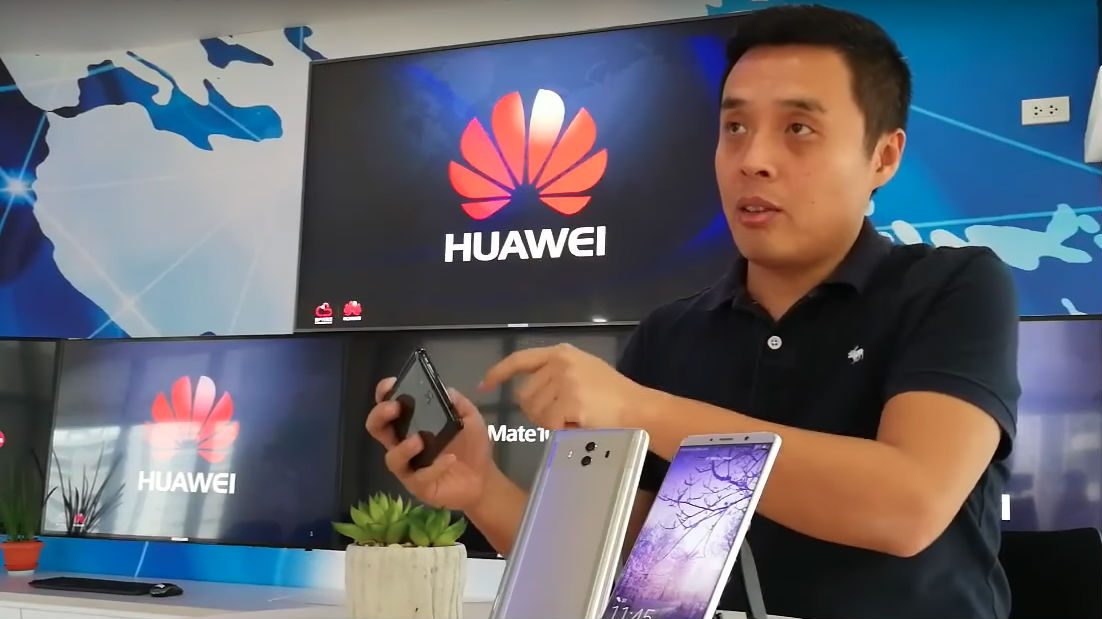SUMMARY
This is AI generated summarization, which may have errors. For context, always refer to the full article.

MANILA, Philippines – It’s been a good year for Huawei, which earlier this year had momentarily snuck by Apple for the second spot in the global sales rankings for smartphones. That was a first for the company, and they’ve only built more momentum after that, with new flagships that have been turning heads: the Mate 10 and 10 Pro.
Last year, the Mate 9 had been a well-received unit, stealing some thunder away from Samsung, which had just then gone through the Note 7 debacle. The Mate 9 was then labeled as the premiere Note 7 replacement. It was a looker with a premium finish, a nearly bezel-less design, and performed admirably.
This year, the Mate 9 series’ follow-ups, the 10 and the 10 Pro, wish not to be known as a replacement for an ill-fated competing phone, but to be its own trailblazer. Like the 9, it’s got a premium design you would love being seen in public with. The usual assortment of performance upgrades come along for the ride, but here’s the kicker: it specializes in AI (artificial intelligence) computing.
Enabling that is Huawei’s Kirin 970 chip, which is a 10nm octa-core chip like the Snapdragon 835 and Samsung Exynos 8895 – except it’s the only Android chip with a neural processing unit, which is dedicated to processing AI tasks.
This AI chip assists the phone in a variety of ways:
- Recognizing and identifying objects and drawing up information regarding these even when offline
- Identifying scenes and using the proper camera settings for optimal photo results
- Improving voice clarity
- Learning user habits to optimize phone performance
If you feel like you’ve heard all of these before, well, you most likely have. But with Huawei’s chip, they’re saying that the efficiency at which these tasks are performed are at an all-time high.
Huawei’s new neural chip represents the paving of a new direction for Huawei phones, where they believe there are massive performance gains to be had as the technology develops further.
Even now, the chip has been able to beat some of its competitors in an image recognition test, as Huawei demonstrated at an event. They pitted the Mate 10 and the Kirin 970 chip against the iPhone 8 and its A11 Bionic chip and the Samsung Galaxy S8 Plus and its Exynos 8895 chip in a test to see how fast the phones would perform. Watch:
The Mate identified around 30 frames per second (fps); The iPhone 8 Plus achieved half of that at around 15 fps; and the S8 Plus performed at a lowly 1 to 2 fps. It was a demonstration of the Mate 10’s superiority, at least in terms of tasks that benefit from a dedicated AI chip.
At which point did Huawei recognize that it’s really time to push for artificial intelligence now? Huawei’s expert on their new phone AI technologies, Eric Zhou, said in an interview that many mobile phone technologies have reached a maturity point where progressive gains aren’t that large anymore.
He cites screen resolution as an example: “In the past 5 to 10 years, graphical capabilities and screen resolution pushed for better performance. But from now, the resolution [quality] doesn’t grow as fast – and in the future too.”
“What will drive the industry forward?” Zhou asked. For them, that’s AI. AI makes a phone intelligent – not just smart. It understands its surroundings, and is able to see, process and digest the information surrounding it.
Huawei believes that by investing in AI now, their phones will be able to power new user experiences, unlock new services, and ultimately, drive the industry forward. “We want our phones not just to see [its environment], but see more. You can scan food, and the phone will provide you a calorie count. You can scan a building and it can tell you what the restaurants are inside. That’s what we mean when we say the phone sees more than we can see,” Zhou said.
“This is the beginning. And I think there are still limitations now. But there are many, many functions that benefit from AI,” Zhou finished.
Indeed, the ecosystem is young and a number of factors – phone adoption, developer support, the usefulness of AI-powered apps and services – are at play that will decide whether AI becomes the industry driver that Huawei believes it could be. What’s sure now is that they have a headstart, a lead that could help Huawei solidify its position in the phone industry as one of the industry’s leaders.
The AI chip-powered Huawei Mate 10 is also an attractively priced flagship, with a launch price of P32,990 – a good price considering that his year, other Android flagships like the HTC U11 which went for P34,500; the LG G6 launched for P37,990; the S8 went for P38,990; and the Sony Xperia XZ Premium went for P45,990. – Rappler.com
Add a comment
How does this make you feel?
There are no comments yet. Add your comment to start the conversation.